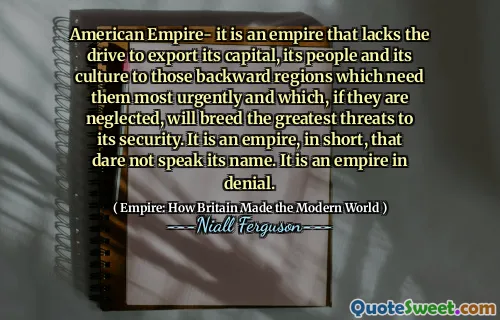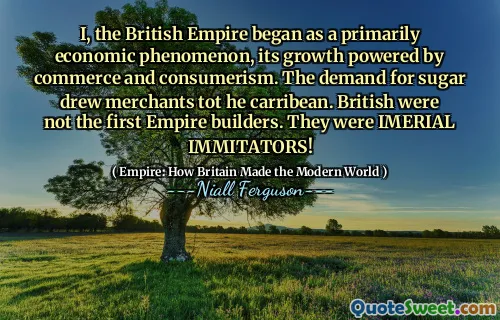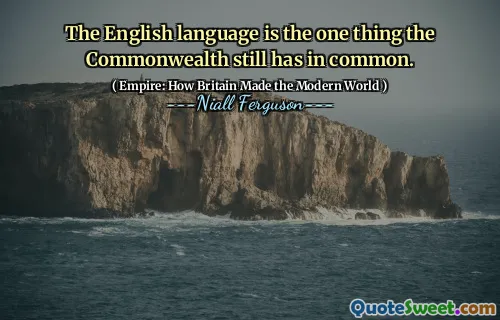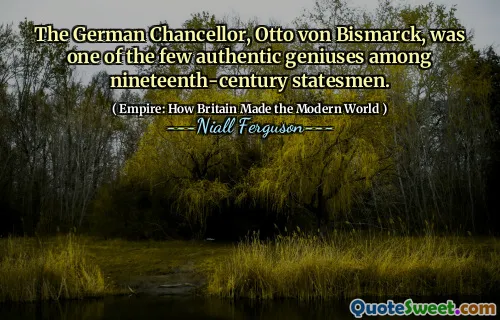
The reality, then, was that Indian nationalism was fuelled not by the impoverishment of the many but by the rejection of the privileged few.
The essence of Indian nationalism, as discussed by Niall Ferguson in his book "Empire: How Britain Made the Modern World," highlights a critical nuance in its motivation. Instead of being driven solely by the widespread poverty affecting the majority, the movement was largely a reaction against the inequality and privilege enjoyed by a small elite. This suggests that a significant aspect of nationalism was the desire for greater equity and the dismantling of existing hierarchies that benefited only a few.
This perspective invites us to rethink the origins of nationalism in India, where the struggles of the masses were intertwined with a broader desire to challenge the socio-economic disparities that colonial rule had exacerbated. By focusing on the rejection of privilege, Ferguson sheds light on the complexities of Indian nationalist sentiment, emphasizing that it was not merely a quest for independence, but also a fight for social justice and redistribution of power.











